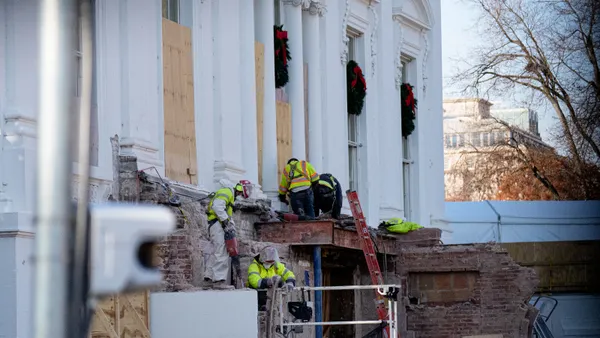Dive Brief:
- The U.S. Supreme Court has declined to hear California building industry-backed arguments against a controversial San Jose, CA, affordable housing ordinance, according to the San Jose Mercury News.
- The building industry, represented by the Pacific Legal Foundation, argued that San Jose's law, which requires builders to set aside 15% of units as below-market-rate in new housing developments, is equivalent to taking private property and is unconstitutional.
- The building industry filed a lawsuit to block enforcement of the law in 2010, but, in June of last year, the California Supreme Court ruled unanimously in San Jose's favor.
Dive Insight:
The city of San Jose, CA, which is struggling to come up with affordable housing solutions for its residents, embraced the U.S. Supreme Court’s decision. "(The) Supreme Court ruling could not have come any sooner for the thousands of families in our community who are struggling to keep up with skyrocketing rents, and we look forward to implementing this policy as quickly as possible," San Jose Mayor Sam Liccardo told the Mercury News.
Housing advocates said that if the Supreme Court had struck down San Jose's "inclusionary" rules, it would only have exacerbated an already grim housing situation in many California cities.
However, the state building industry expressed its dismay at the ruling. "The rights of all property owners were dealt a blow today, as San Jose's punitive treatment of homebuilders was allowed to stand," Pacific Legal Foundation attorney Brian Hodges said.
The building industry has said that laws similar to San Jose’s will only drive up housing costs as developers pass their losses from some units, or the estimated alternative fee of $122,000 per home, on to market-rate buyers.
California city and state associations said that approximately 170 local California governments have enacted similar laws in an effort to address the state’s affordable housing crisis, particularly in the San Francisco Bay Area. Los Angeles has also been experiencing a major affordable housing crunch, and officials have proposed several remedies, such as additional developer fees, city funding and even conversion of a future Olympic Village.













